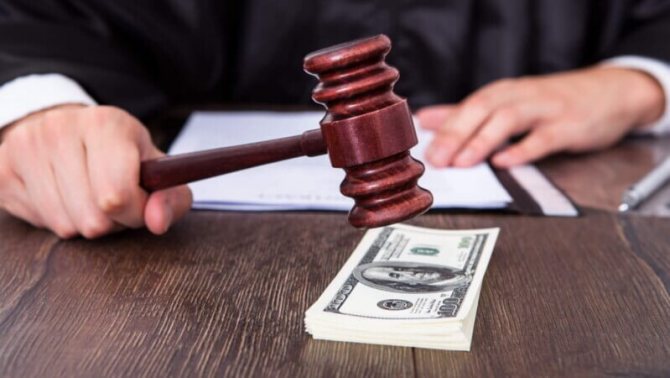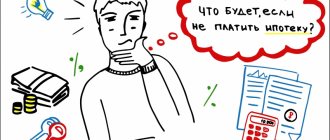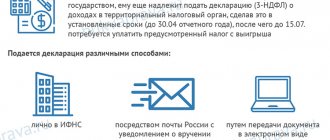Possible consequences of non-payment
If monthly payments are not made, the banking institution always takes quite strict measures. The borrower must contact the bank in advance and write an application for a special deferred payment. This service is valid if the client has really serious reasons why he is temporarily unable to make monthly mortgage payments.
If the client does not contact the banking institution and ignores calls from the credit manager, the bank has the right to immediately go to court, which is unlikely to be on the side of the borrower. As a result, you may lose the mortgaged property, and all penalties and fines will have to be paid additionally.
In case of non-fulfillment of debt obligations, the bank also engages the assistance of collection services to clarify the circumstances of non-payment.
What will the bank do if you don’t pay?
A person does not want to lose his home, and a bank does not want to lose its funds. Therefore, when concluding a mortgage agreement, the terms of payments, penalties in case of delays and the actions of the bank in case of refusal to pay the mortgage are discussed. The contract is drawn up on the basis of regulatory legal acts, these are:
- Civil Code of Russia;
- Mortgage Law;
- Housing Code;
- Loan agreement.
The credit institution in its actions towards the borrower is guided by these legal documents.
If the bank refuses to pay the mortgage:
- Notifies the borrower of overdue payments;
- Applies penalties (additional interest is charged);
- Sues the debtor;
- Repays the loan amount by selling the home at public auction.
Before filing a claim in court, the banking institution tries to resolve the issue. There are different options for solving the problem: restructuring, credit holidays, refinancing. If all methods have been exhausted or are impossible for some reason, the bank files a claim. Some credit institutions may refer the case to collection services. The operating methods of these organizations are rigid.
The bank has the right to take appropriate measures in relation to the defaulter if the payment debt exceeds 5% of the total loan amount.
What consequences await the defaulter in the future, what will the bank do?
If the loan is not repaid, the client will face unpleasant consequences:
- Blacklisting as a willful defaulter;
- Increase in debt;
- The client may be evicted from the apartment based on a court decision;
- All accounts of the borrower may be frozen;
- The defaulter will not be able to leave the country.
It is important for the bank to return its funds quickly, so the housing is sold at auction at a minimum cost. This is not beneficial for the client; he is left without an apartment and with debts to the bank. The right thing to do would be to sell the home yourself, without taking the matter to court.
There is no way out of the situation if the borrower is hiding from the bank, debt collectors and the court. According to legal norms, such persons are subject to administrative or even criminal punishment, since these actions will be classified by the court as fraudulent. If you have nothing to pay the mortgage and it is impossible to keep your apartment, it is better to reach an agreement with the bank and get permission to sell your home. This option will allow you to pay off the credit institution, not remain in debt to it and maintain a positive credit reputation.
Look at the same topic: Mortgage for the construction of a residential building in Rosselkhozbank [y]
What can the bank do?
If there is no monthly payment on a mortgage loan, the bank may take a number of measures against the defaulter
:
- Daily calls to find out the reasons for the existing mortgage loan delinquency. Additionally, the client can be sent SMS notifications about overdue payments;
- Resolution of all arising disputes out of court. To do this, the client may be called to the financial institution to find out the reasons for non-payment of the loan and possible adoption of alternative solutions in the form of refinancing the mortgage;
- The bank has the right to sue the defaulter on the loan if there are facts of long-term non-payment of the mortgage loan;
- The forced adoption of a court decision to collect all existing mortgage debt together with the accrual of interest.
Moreover, if the client is not present at the court hearing, the mortgaged property pledged by the banking organization that went to court can be sold at auction at a reduced cost.
How does the bank deal with mortgage arrears?
Despite the fact that the bank has the right to take fairly tough measures against the borrower, in most cases, at the initial stage, the lender tries to peacefully .
There are several reasons for preferring a peaceful settlement:
- litigation with the borrower, guarantor and co-borrowers is a lengthy and very costly process;
- selling the collateral or turning it into the property of the creditor is a rather complex process that requires additional costs and time;
- collectors, if they are involved in collection, will have to pay a commission, but the bank usually has its own specialists who are involved in resolving issues with problem debtors;
- By selling a mortgage loan, the bank loses a lot of money, so this procedure is resorted to only when it is no longer possible to collect the debt by other means or it is unprofitable.
At the initial stage, the creditor always tries to find out what is the reason for the debtor’s failure to fulfill his obligations. For this purpose, telephone calls, emails and registered letters may be used for communication.
If it becomes clear that financial difficulties are temporary and the borrower is not going to refuse payments, he may be offered debt restructuring programs . Moreover, if difficulties arise with payment, it makes sense to contact the bank yourself. This will help solve the problem faster with minimal consequences. We have previously described in detail what loan restructuring is and how it is carried out in our article.
The debt collection process begins when it becomes clear that the borrower is unable or unwilling to continue to repay the mortgage on an ongoing basis. In this case, the bank first turns to collectors . If they cannot help, the judicial authorities .
Most often, real estate serving as collateral for a mortgage fully covers the debt under the loan agreement. That is why it is most effective to collect the debt through the sale of the collateral. In this case it does not matter whether the collateral is the borrower’s only home or whether children are registered in this area.
? We recommend reading the article “How to borrow money against real estate (apartment).”
An exception to all of the foreclosure efforts described above occurs when the borrower takes out insurance . However, an important condition is that the insurance contract must indicate that in certain situations the insurer will pay the mortgage loan for the debtor. Such options are possible if the debtor has insured himself against possible loss of work, as well as in case of illness.
If the borrower has an insurance policy, this can be a major help in solving problems with mortgage payments. However, in most cases, insurance provides payments only in the event of the death of the borrower or in case of serious damage to the collateral property.
What will happen to the apartment?
If the amount of debt due to non-payment of mortgage is more than 5%
of the total loan debt, the bank has the right to seize real estate by law. If the amount owed is below this amount, the banking institution may seize the collateral. An apartment owned by a bank can be sold at auction at any time. At the same time, the banking institution sets a price much lower than the market price.
It is important for any financial organization to receive on time not only the total amount of the loan taken, but also all accrued interest, fines and penalties. At the same time, the bank is guided by a policy in which, when selling an apartment at auction, the funds received from the sale are spent first of all on paying off fines, then interest, and only then the main mortgage loan is paid off. As a result, in some cases, the amount received from the sale of a home at auction is not enough to repay the principal debt. According to the court's decision, the remaining amount will be written off monthly from the borrower's earnings.
Procedure for collecting mortgage debt

Borrowers stop paying their mortgage for various reasons (divorce proceedings, job loss, serious illness, disability, etc.). If the debtor does not make contact, the bank begins the collection procedure. The algorithm for returning a late payment includes the following steps:
- Written notification to the client about the debt. To quickly convey information, all available channels of communication with the debtor are used (telephone, SMS messages, instant messengers, email). When a person refuses to cooperate with the bank, the credit institution moves to the next stage of collection;
- Transfer of the debt to a collection agency (the company established by Sberbank handles the return of overdue payments). After concluding an assignment agreement, the debtor will be subject to constant psychological pressure. He will have face-to-face and correspondence conversations with professional debt collectors, many of whom are former employees of law enforcement agencies.
- Trial. This procedure is aimed at satisfying the creditor’s requirements through the sale of the collateral apartment. If a citizen is poorly versed in modern legislation, then he will have to pay money to a lawyer. The bank sues when the payment is not received into the mortgage account within 90 days (a so-called technical delay is allowed, which can last up to five days).
A debtor who does not make contact with bank employees will be forced to pay fines and penalties. The amount of the penalty depends on the refinancing rate established by the Bank of Russia. The borrower will also have to reimburse the bank for the costs associated with paying for legal services and transferring the state fee for the statement of claim.
After the apartment is seized, the debtor is evicted from the premises. After this, the housing is sold during a special auction. The bank's financial requirements are satisfied from funds received from the sale of collateral real estate. If the client refuses to vacate the premises, he is forcibly evicted. In case of malicious disobedience to bailiffs, physical force is used against the citizen. Failure to pay the next installment will permanently damage the client’s credit history. It will go into the FSSP database, which is publicly available.
The problem of mortgage defaults is widespread. Debt issues concern not only ordinary citizens, but also representatives of the Russian government. Currently, deputies of the State Duma of the Russian Federation are developing a law that will allow the authorities to buy mortgaged apartments. All debts of the borrower will be repaid from budget funds. After this, the apartment will become the property of the state. The former debtor will be able to live in the purchased apartment on social rental terms.
Actions of the bank if the mortgage is not paid
The credit institution monitors the proper fulfillment of obligations and, if the payment is late for 1 month or more, takes measures:
| Notifies in writing of violation of obligations | Bank employees report the amount of debt and penalties, recommend closing the debt and returning to the payment schedule |
| Restructures debt | Not all banks offer this action. The client independently initiates the procedure for reducing the mandatory contribution. Refusal does not bode well for the client. |
| Terminates the mortgage agreement | The action is initiated by the bank. Insists on termination of the mortgage agreement unilaterally and compensation of the remaining debt from the collateral |
| Sends a claim to court | A lien is placed on the property that is pledged (the subject of the mortgage agreement). By court decision, a bailiff service works with the debtor to repay the debt |
At the court hearing, a decision is made on the method of settlement with the bank. The property is being assessed for sale at auction. As soon as the case is heard in court, the amount of the borrower's debt is fixed. Stops increasing by penalties and fines accrued by the credit institution.
conclusions
In the absence of mortgage payments, Sberbank has the right to sue the client and seize his property to pay for the payments. Depending on the financial situation of the debtor, bailiffs can seize his salary cards and bank accounts, seize valuable property (equipment, car, jewelry, etc.) or seize an apartment purchased with a mortgage. In the latter case, the debtor is evicted from the property, and it is sold at a minimum price, just to recoup the bank’s costs.
A citizen can avoid eviction if he independently contacts the creditor to work out the current situation. He can also sell the apartment himself at the market price, pay off the debt to Sberbank and take the rest of the funds for himself.











